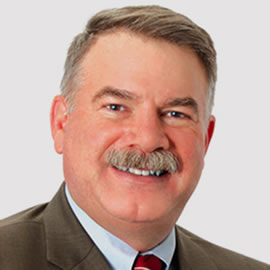‘You can’t have a healthy civilization without healthy soil. You can’t have junk food and have healthy people.’ — Joel Salatin, American farmer, lecturer and author
I identify with the label “foodie.” While I am no help in the kitchen (I can burn water) beyond doing the dishes, I am a joy to cook for because I enthusiastically praise anything prepared to pass down my gullet. As expected, managing my weight and body shape has been a lifelong challenge due to my passion for food.
Our nation is blessed with bountiful farmland for food production and adequate infrastructure to meet the caloric needs of our population. Sadly, hunger remains an issue in our society, and famine still exists in the world, but malnutrition usually is not the result of food scarcity. Instead, economic inequality and war preventing food distribution are usually the driving forces behind hunger in the modern era. Early in the history of humanity, most of our time was consumed by the need to hunt and gather food for our daily caloric needs.
Modern society has freed Americans from the necessity of finding their next meal, and we are blessed with time for other pursuits, which has made all the difference. Our food industry is a marvel, but it has resulted in some self-inflicted and often deadly health consequences.
I have often pondered why I crave sweets, even when I can rationalize from my training as a physician that too much sugar intake can lead to a variety of health problems like obesity, Type 2 diabetes and heart disease. I know from my education as a biologist that early hominids likely evolved with a craving for sugary foods because nothing that tastes sweet can kill you, and sugary food sources (fruits) were energy-dense. When the timing of your next meal is not guaranteed, I imagine the urge to gorge on safe, high-calorie food sources was strong in prehistoric man. I can testify that this primal urge remains strong within me every time I pass a bakery window.
Early humans likely did not suffer the consequences of their sugar habit, since available calories were much more challenging to obtain, and their diets consisted of only naturally occurring sugars. I am grateful that my labors today to get adequate calories for myself and my family no longer demand hours of effort and the risk of possible injury from welding a spear. Today, my “hunt” takes a few hours a week, and the only challenge is finding a desired item hidden in the cornucopia of the supermarket aisles.
While I am certainly appreciative and generally enthusiastic about the food industry, and everyone involved in keeping my family’s pantry full, there is an insidious reality to our food supply that is far less palatable. Processed sugar introduced into our food supply leads to unnecessary morbidity and mortality. The biggest offender in this category is high-fructose corn syrup (HFCS), used to sweeten many processed foods Americans consume daily. The HFCS industry is a big business, with deep financial pockets. I see many similarities between the nicotine pushers of the late 20th century and the sugar pushers today.
The tobacco industry understood the addictive and dangerous health consequences of nicotine early in the development of their products. The insidiousness of the cigarette was that it dosed just enough nicotine to cause your body to desire the next cigarette. Fabulous wealth was (and continues) made from a product we know today has prematurely killed millions. We also know today that excess sugar in our diet is harmful, yet we allow the food industry to add HFCS and other sugars to our food supply.
Have you ever tried to eat just one cookie? Most Americans remain blissfully unaware of this added sugar, erroneously assuming that government regulation of the food industry would prevent anything harmful from being allowed for consumption (There are other offending chemicals like toxic food dyes red No. 40 and yellow Nos. 5 and 6, for example.). It took decades of legal and legislative work to bring the tobacco industry to heel; the fight has hardly begun with the food industry.
There is some reason for hope regarding the toxins in our food supply. U.S. Rep. Anna Paulina Luna (R-FL) has introduced the Stop Spoonfuls of Fake Sugar Act, which is designed to restrict the use of HFCS in food and drink. The bill is controversial because of the significant changes it would require the food industry to implement, not to mention the cost. I fully support this legislation, even though it is unlikely to survive the food industry lobby, because it might bring excess processed sugar in our diets to the forefront of consumer attention. Similar to the consumption of tobacco from our past, the public remains generally ill-informed regarding the dangers of excess sugar. Camel cigarettes historically advertised their brand as preferred by 4 out of 5 doctors; who were these physicians? Today, we are inundated with advertisements for energy drinks, soda, chips and the like, artificially sweetened for our naturally evolved craving for sugar.
As federal physicians, we are responsible for educating our patients about the health risks of their environment. Further scrutiny of the nation’s food supply and additional food label warnings regarding harmful additives is a starting point. I have recently begun using food label scanning apps (Yuka, for example) that provide information on food quality and warn of potentially harmful food additives. It is appropriate to urge our patients to become more informed consumers regarding their diet. During my clinical years, I made a habit of suggesting that the elimination of cigarette smoking would significantly enhance a patient’s health outlook. My advice today includes recognizing the added sugar in processed food as dangerous and taking steps to avoid it.


